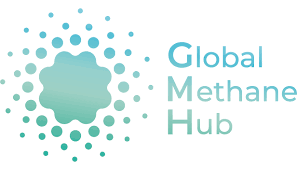Satellite methane monitoring in rice growing regions of Latin America
 Uruguay
Uruguay
 Panama
Panama
 Peru
Peru
 Colombia
Colombia
 Costa Rica
Costa Rica
 New Zeland
New Zeland
 United States
United States
Executive Summary
Given the importance of quantifying methane (CH4) emissions from rice paddies in national inventories and the increasing investment in mitigation technologies, there is significant value in developing verification technologies that can be applied at regional or national scales.
It is currently possible to monitor CH4 content using satellite sensors. An example of such a sensor is the Sentinel-5 Precursor (Sentinel-5P) satellite. This is a reliable data source that can be used to analyze spatiotemporal changes at different spatial scales, including regions and countries.
This project aims to strengthen regional capacities for monitoring, reporting, and verification of methane emissions in rice ecosystems through a satellite tool that provides frequent, reliable, and free estimates to rice communities and governments.
The technological solution
Strengthen regional capacities for monitoring, reporting and verification of methane emissions in rice ecosystems through a satellite tool that provides frequent, reliable and free estimates to the rice community and governments.
This will be achieved through:
i) the design of models based on satellite information to estimate methane emissions in rice ecosystems
ii) the validation of models using field samples acquired in rice-growing regions with contrasting ecosystems
iii) the development of a web platform to democratize access to the data and knowledge generated under this project.
Results
Design of satellite-based models to estimate methane emissions in rice ecosystems using artificial intelligence (AI) algorithms with the objective of emulating the physicochemical processes encoded in atmospheric gas transport models. Meteorological data, land cover and atmospheric CH4 concentrations are expected to be used to predict emission fluxes from rice ecosystems using satellite data.
This will allow the characterization of different rice regions using novel methane sensors. Field data acquired will be correlated with satellite data and the results of this validation will be included in a web platform, making them available to the entire rice community and governments. This is expected to provide a novel information system that will contribute to policy-making aimed at mitigating GHG emissions and improving the welfare of rice producers in the project countries.
Beneficiaries
The direct beneficiaries in the project countries will include:
-1500 producers and extensionists
- At least 150 researchers and 50 national GHG inventory managers and government policy makers in the countries participating in the project.
Indirectly, and due to the global nature and the free nature of the tools designed, we expect to be able to impact 3000 beneficiaries in other rice growing regions of America, Africa and Asia.
Sustainable Development Goals




Project news
Participating Organizations
Executor
- Instituto Nacional de Investigación Agropecuaria (INIA) - Uruguay
Co-executor
- Universidad Nacional Agraria La Molina (UNALM) - Perú
- Conagro Semillas, S.A. (CONAGRO) - Panamá
Associated
- Fondo Latinoamericano para Arroz de Riego (FLAR) - Colombia
- Instituto Interamericano de Cooperación para la Agricultura (IICA) - Costa Rica
- Otago University (Otago University) - Nueva Zelanda
- The United States Department of Agriculture (USDA) - Estados Unidos





